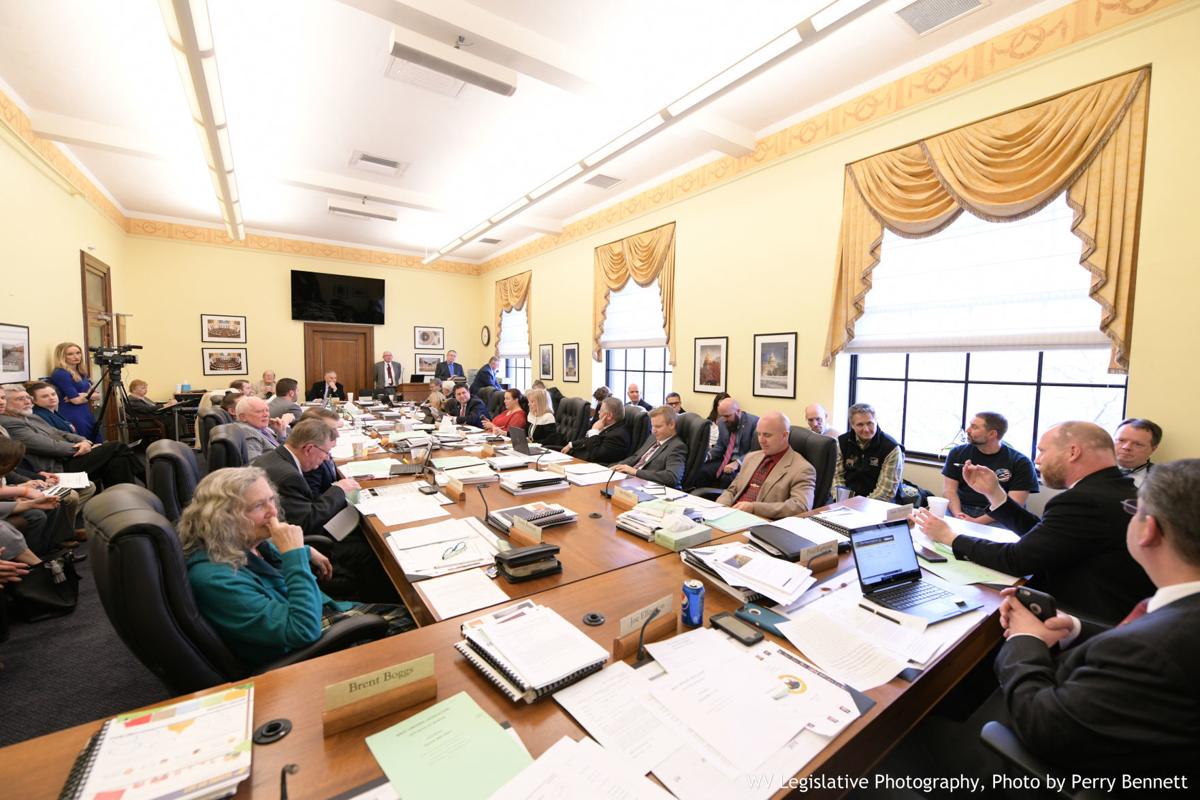West Virginia House Committee Approves Bill to Cut Severance Taxes on Steam Coal

By Jake Jarvis
February 23, 2019 - West Virginia delegates are mulling a proposal to marginally lower the severance tax on some types of coal, even though it would cut the General Revenue Fund by $60 million.
Members of the House Finance Committee approved a new bill, which is not currently numbered because it originated in the committee, to lower the severance tax on steam coal from 5 percent to 3 percent.

Members of the House Finance Committee, shown here in a file photo, approved a ill Friday to cut the severance tax on steam coal.
Photo by Perry Bennett, West Virginia Legislative Photography
Chris Hamilton, vice president of the West Virginia Coal Association, said cutting the tax would help mines better compete with neighboring states and would help save potentially hundreds of jobs.
“I’m opposed to the bill,” said Del. Isaac Sponaugle, D-Pendleton. “Basically from the testimony we heard from the state tax department, it is statistically insignificant on the amount of jobs that will be created. From the Coal Association, there are 500 jobs that it will preserve or create. So that’s $120,000 per job — of $60 million — that we’re giving away.”
The state Senate commissioned West Virginia University economists to study the issue of eliminating the severance tax on coal. That study concluded that eliminating the tax altogether would do little to increase or decrease the number of jobs.
Because the bill originated in committee, no state agency has officially weighed in on how much it would cost the state.
Counsel for the committee said estimates are that it will reduce revenue by $60 million to $67 million, but a fiscal note will be prepared soon.
Deputy Revenue Secretary Mark Muchow, when asked how the bill would affect jobs, said he didn’t think it would have a statistically significant effect. Muchow said the coal market is already shrinking nationally and there doesn’t seem to be an upside for the future.
Nationally, coal production has decreased nearly 2 percent. In West Virginia, however, coal production rose more than 3.5 percent, thanks to exports of coal used in the production of steel, according to Muchow.
“This will keep those jobs as viable as anything will,” Hamilton said.
He went on to say that in the “best-case scenario,” the coal industry will be able to keep hundreds more jobs.
Committee members were worried that cutting the tax would hurt counties. Currently, counties received 0.35 percent of the 5 percent tax, and the final 4.65 percent goes to the state. The bill essentially includes a hold-harmless provision, meaning that the 2 percent reduction would be to the state’s share and would not affect the counties’ share.
The bill as originally written would have taken effect before the current fiscal year ends, but Del. Linda Longstreth, D-Marion, successfully amended it to take effect on July 1, when the new fiscal year begins.
“Coming from a coal-producing, actually a coal holler I’d call it, we saw a decline in the coal industry,” said Del. Zack Maynard, R-Lincoln. “And when that happens, it really hurts the area ... and we heard testimony that this could possibly produce jobs and make our coal more competitive within the market.”
The bill now heads to the House floor for a vote.

